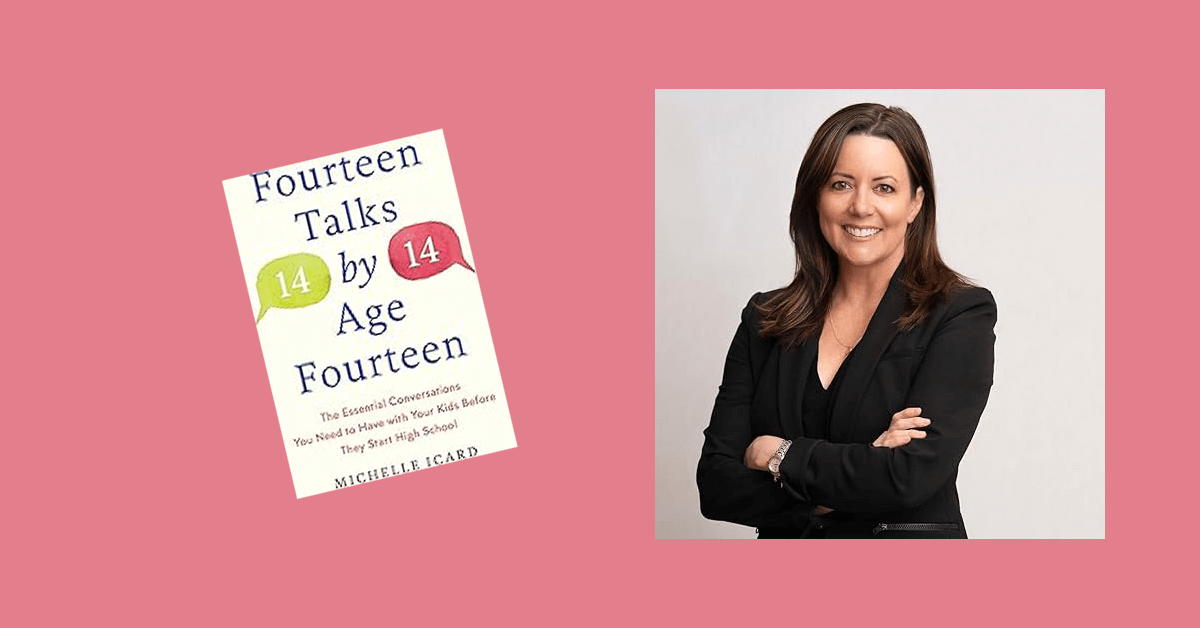October 30, 2024
Last month, I shared an interview I did with Michelle Icard on her new book, Eight Setbacks That Can Make a Child a Success. It occurred to me after writing that piece that Ms. Icard’s previous book on how to have difficult conversations with tweens would be a helpful resource to parents supporting their children through setbacks as well as other difficult moments.
For parents feeling nervous about initiating conversations with kids on topics such as failure, online porn, sex, and social media – and admit it, that’s all of you – Michelle Icard’s Fourteen Talks by Age Fourteen: The Essential Conversations You Need to Have with Your Kids Before They Start High School is sure to boost your confidence.
For starters, some welcome, liberating news: Ms. Icard suggests that parents spend less time worrying about making mistakes when engaging their tweens on high-stakes topics. Instead of trying to give the perfect lecture at the perfect time, she suggests, parents should initiate numerous smaller dialogues that evolve as students mature throughout middle school.
The goal and probable result: parents will develop a trusting conversational rapport with their kids that will…


